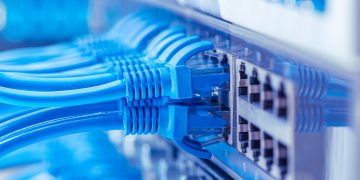At present, high-speed Internet service has turned out to be extremely important just like water or electricity. It happens to be the gateway for virtually everything from news, education, dining, dating, and all types of amusement such as music, gaming, as well as TV. A reliable Internet connection has become compulsory for the majority of Americans out there.
However, it is a fact that every individual in the US does not have access to high-speed Internet. Approximately 19 million American citizens or 7% of the total population are not able to access high-speed Internet since they are not able to gain access to a reliable broadband provider.
That being said, most Americans have access to some sort of high-speed Internet from their ISP. On most occasions, it happens to be DSL or cable Internet. In case you are fortunate, you will also have access to fiber offering the fastest service. In case you are not that lucky, you might be required to be satisfied with a satellite connection.
Below, we have mentioned some advantages and drawbacks of the different technologies in question plus some useful buying guidelines.
1. Fiber
It is a fact that fiber-optic cables constitute the global telecommunications system’s backbone, and it serves as the primary connective pathway for the majority of the planet’s TV, Internet, as well as telephone services. It is not long ago when fiber optics was employed exclusively for connecting different locations in the country. However, during the last 10 years or so, several ISPs in some selected cities have started extending fiber optics to individual businesses and residences.
Pros:
• Download speed is extremely fast along with dependable service and low latency
• An absence of data caps
• The best solution for data-intensive applications such as gaming and video streaming
Cons:
• Professional installation is required
• Lesser numbers of providers
• Availability is quite limited
2. Cable
In general, the cable is able to provide faster speeds as compared to other internet service types (except for fiber) which makes it a fantastic option for activities such as music and video streaming, downloading big files, as well as gaming. On most occasions, you will get this service along with your cable TV service, and several providers offer lucrative discounts once you sign up for both.
Pros:
• Connection is dedicated, standalone, and always-on
• More reliable and quicker as compared to satellite, DSL, and dial-up Internet
• Ideal for applications which are data-intensive such as online gaming and video streaming
Cons:
• Bandwidth is shared by the community which might slow down the connection speed during peak hours
• Not obtainable everywhere
• Monthly service and installation charges can be costly
3. Dial-up
This particular option has lost its popularity among consumers in recent years and is being offered by a lesser number of ISPs out there. In fact, only the most rural as well as remote locations are using the dial-up Internet connection at present. However, one good thing is that it will be possible to access the web in case you possess a landline phone connection.
Pros:
• Runs on phone landlines
• Affordable
• Available widely
• Multiple providers
Cons:
• Download and upload speed is extremely slow
• The number of hours you will be able to browse the web is limited by some plans
• The Internet and the phone cannot be used simultaneously
• A landline is required
4. DSL
DSL is actually considered to be broadband Internet. Even though it can be faster than a dial-up connection, its speed is less than that of a cable connection. Although this type of connection might be adequate for surfing the Internet and sending emails, it is not ideal for data-intensive tasks.
Pros:
• Multiple suppliers
• Available widely
• Comparatively affordable
• Dedicated bandwidth
Cons:
• Connection speed is slow
• Performance and speed depends on the proximity of the ISP
• Can be disrupted by the weather similar to telephone service
5. Satellite
Internet connection beamed from the space will surely be an interesting idea. While going for a satellite Internet connection you need to position a dish on or around your residence and it is going to send and receive signals from the satellite orbiting the planet. The majority of the satellite Internet providers depend on only a few large satellites located at a distance of around 22,000 miles from the earth.
Pros:
• Available widely, even in remote and rural locations
• Competitive pricing because of multiple providers
Cons:
• A satellite dish has to be installed on or around your residence
• Slower speeds or costly overage fees because of data caps
• Susceptible to disruption as well as laggy
6. 5G
5G happens to be the subsequent generation of cellular technology and it promises to provide an innovative era of Internet access with dramatic enhancements in coverage, responsiveness, as well as network speed. We have tested 5G speeds in various locations on the planet and, although it is not perfect yet, it has a very promising future and it will be well worth the wait.
For instance, the network of Verizon has depicted Internet speeds of more than one gigabit every second, which is usually a lot speedier as compared to your regular cellular connection. It is even faster as compared to the speed provided by a fiber-optic connection. Apart from having high speeds, 5G networks likewise have remarkably low latency which implies that there will be almost no pause between when the link is clicked by you and when the video or website actually loads. It definitely sounds awesome.
Pros:
• Low latency and extremely high speeds
• Dedicated bandwidth, and absence of data caps
• Appropriate for applications which are data-intensive
Cons:
• Unverified technology
• Signal strength is questionable
Guidelines for choosing an ISP
• Take the recommendation of your neighbors. Ask them regarding which service providers they are using and also avoiding.
• Choose your own router or modem whenever possible. This will help you to save some money, in the long run, considering the fact that several providers charge an extra fee for renting modems and routers.
• Look out for data caps. You might be required to pay overage fees in case the monthly data download threshold of your plan is exceeded.






















